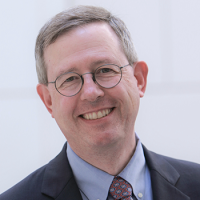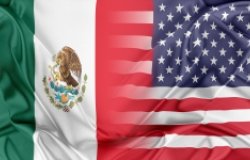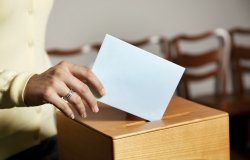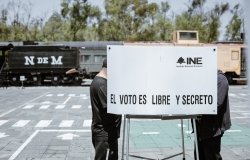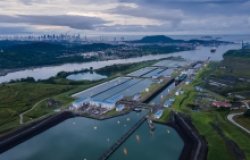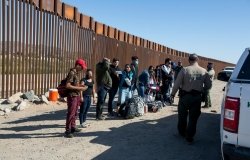© Library of Parliament
What Happened in Canada’s 44th General Election
Overview
The Canadian federal election on September 20 followed a 36-day campaign marred by heckling, protestors, and attack ads. Six political parties competed for 338 seats in the House of Commons after Prime Minister Justin Trudeau called the snap election.
The Wilson Center’s Canada Institute gathered political experts from coast to coast to assess the outcome and outlook for the new government, trends revealed during the campaign, and implications for Canada’s relations with the United States and the world.
Selected Quotes
Darrell Dexter
"It is good to start with what the overall narrative was for that election, and really, at the beginning of the campaign, everybody… was saying that it was an unwanted and unnecessary campaign...That narrative stuck around, and it stuck around throughout the entire campaign. You heard it almost as much at the end of the campaign as you did at the beginning. And lo and behold, the people of Canada decided that they were just going to send the same parliament back to the house of commons. They did that almost exactly, just proving the point that it was an unnecessary and unwanted campaign. I would say that none of the parties really got what they wanted out of that election, not much progress was made by the opposition parties and no real progress was made by the government in terms of solidifying a minority.”
(In Nova Scotia) "For many people, it seemed like the question was not who's going to manage the rest of this crisis, but it was who's going to manage after the crisis. Who's got the recovery plan, who is going to move the province forward, that’s a much different question.”
"The way the liberal campaign developed, by the end the ballot question was who do you trust to get us through to the end of this pandemic… The ballot question at the beginning [that] they seemed to be moving toward was more around who do you trust or who do you think is best to set the country up for recovery…[the] sweet spot for the prime minister was this: who do you trust to finish the job on the pandemic.”
Monique Smith
"[N]obody got what they wanted. I mean Justin Trudeau came out the same, actually a little bit better than some people were predicting by the last week… If you were looking from the beginning of the campaign when he was looking for a majority he didn’t do well. If you were looking from midway through the campaign where he looked like he was losing even a minority, he pulled it together and he did fine. I don’t know that he's got another election in him, but he's got two years to leave his legacy, so hopefully, he'll use that time to make a move on some of the big policies that he's talked about like daycare and climate change. I would say the liberals are probably looking at a leadership in a year, 18 months to try and get ready for the next round.”
“The question was raised in the very beginning: why now? [Justin Trudeau] was never able to answer it and so that became an issue and that’s why people are defining it as the election about nothing because no one could figure out what the issue was because he couldn't define why he wanted the election now. I think that’s part of the reason why he didn't get his majority, because there was no answer to that question…the fact that the Prime Minister could not answer the question ‘why now’ I think annoyed a lot of people."
"I want to touch on the presence of the people’s party of Canada, led by Maxime Bernier, who is a French, from Quebec, politician, seen as a fringe party seen as kind of the radical right, certainly adopted some Trump-like tendencies during the campaign. But they were very much a vote splitter in Ontario where we had conservative candidates who failed to make gains because, in many cases, the correlation is between the numbers of the PPC going up and the numbers on the conservatives either staying the same or going down so where they might have made some gains that were pulled from them by the PPC, but the PPC failed to be elected anywhere in the country, they were just spoilers in a number of ridings where you can kind of do that math pretty easily."
Edward Alden
"I think it will be interesting to see what happens with US/ Canada relations after this election, the actions this week by the Biden administration were a shock to Canada…under a lot of pressure from the Europeans, the US has now announced they are lifting the travel ban for vaccinated Europeans as of early November. Others too, China, India, other places, vaccinated travelers are going to be able to start coming back to the United States. But that very same day the administration announces another month-long extension of no non-essential Canadians allowed to drive across that land border and I don't think that any of us sort of believed Canada would somehow find itself at the back of the line when it came to easing the COVID travel restrictions, and I think some of this is just a real neglect we've seen in the relationship under COVID. Both Canada and the United States have been very domestically focused. I think in Canada certainly there was a lot of anger about how the pandemic was handled here during the Trump administration, I think there's a lot of lingering bad feelings carried over from the Trump base. I do think one of the challenges for the Trudeau government now will be to try to rebuild and strengthen the Canada/U.S. relationship, which is still, I think, fundamentally strong…but I think there are some bigger irritants and shaky points at the moments than we've seen in quite a while."
"The fact that the Canadian election was so boring is a good thing, here in the United States in terms of the future of our democracy boring would be great…we've had the opposite of boring, dangerous and insurrectionist… I think the short duration of the elections is a good thing. We live here in the United States under perpetual elections, which I think are not a great thing for governing. I think in Canada you have a more appropriate balance which is mostly what governments do is govern, and then for a period of time the election takes front and center…here in the United States we have this kind of permanent election environment and I think that it has encouraged everything to be viewed through a partisan lens.”
"I think it was very significant, and I think covid will continue to dominate elections until it begins to fade more significantly…I think that was the biggest thing that Aaron O'Toole wasn't able to overcome. The liberals tried to paint him as sympathetic to the anti-vax movement. I think he was reluctant to go too far in a pro-vaccine direction because he was worried about the People's Party on his right flank. I don’t think there's any question that's probably the biggest issue that hindered his shift to the left and explains why he didn't take more of the 905 area votes, why he didn’t take more of the suburban votes out in British Colombia.”
“I do think there are some interesting parallels in the United States. Canada and the United States are very different political entities and what happens in one doesn't necessarily spill over into the other, but you’ve seen Joe Biden wrestling I think with exactly this question: how hard to push on vaccines and a vaccine mandate…I think that is going to be defining issue here in the midterms and quite possibly the next presidential election. I think for the foreseeable future COVID is still king unfortunately for all of us.”
Frédérick Gagnon
"If you compare the situation of this election in Canada with the election in 2020 in the United States…I don't feel that for most voters this election was a referendum on the performance of Justin Trudeau on COVID-19 like it was in the U.S. For many voters it was a referendum on how Donald Trump had handled COVID-19."
"If you look at polls, public opinion polls on issues that matter to Canadians…you see variations among provinces of course…COVID-19 was the fourth most important issue for voters in Quebec, after climate change, improving health care access… and taxes."
Panelists

Edward Alden

Darrell Dexter

Frédérick Gagnon
Full Professor, University of Québec in Montreal; Holder, Raoul Dandurand Chair of Strategic and Diplomatic Studies

Randy Pettipas
President & CEO, Global Public Affairs
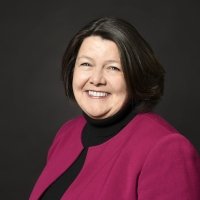
Monique M. Smith

Lauren Stone
Hosted By

Canada Institute
The mission of the Wilson Center's Canada Institute is to raise the level of knowledge of Canada in the United States, particularly within the Washington, DC policy community. Research projects, initiatives, podcasts, and publications cover contemporary Canada, US-Canadian relations, North American political economy, and Canada's global role as it intersects with US national interests. Read more
Thank you for your interest in this event. Please send any feedback or questions to our Events staff.
